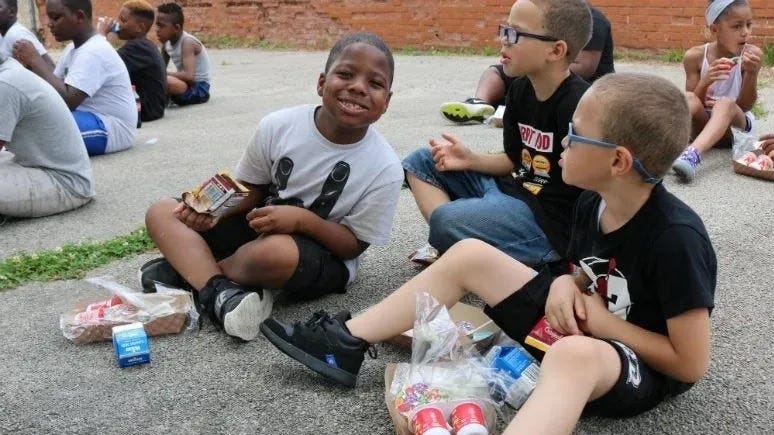
PHILADELPHIA (KYW Newsradio) — Free meals that kids were receiving at schools through the USDA due to the COVID-19 pandemic have ended. Families can still re-apply for federal meal assistance, and efforts are underway in New Jersey and Pennsylvania to keep the meals going.
During its height, the pandemic brought layoffs, uncertainty, and economic hardship to the front door of many families, so the national free breakfast and lunch program brought welcomed relief.
Parents must again apply for the program, as they did before the pandemic.
"We don't want parents to miss out. We want them to go ahead and get their children signed up,” said USDA Food and Nutrition Service Regional Administrator Patty Bennett. The USDA says parents can work with their school’s child nutrition program operators.
However, some parents have not received that message, according to School Nutrition Association of Pennsylvania Legislative and Public Policy Chair Nicole Melia.
"What we're seeing is a lot of confusion across families who would qualify for free and reduced [cost meals], who now feel like they might have to pay,” said Melia.
"The school breakfast and lunch program provides the healthiest meal that these students may be getting. There's fruits and vegetables. There's whole grains. There's low-fat dairy."

According to the USDA, 30 million kids received free meals during the last school year. That rose from 20 million per year before the pandemic.
Melia says she is grateful that state Sen. Lindsey Williams, D-Pittsburgh, is making a push to keep those meals going in schools through new legislation that is in the works.
New Jersey is making that same effort with a bill that awaits Gov. Phil Murphy’s signature.
"That's done to make sure that they receive good and healthy meals,” said bill sponsor and Assembly Speaker Craig Coughlin, D-Woodbridge. “Study after study academically in every respect, everybody knows that students who are receiving nutritious breakfast and lunch perform better."
He said some parents who struggle to make ends meet are reluctant to apply for these programs.
"Students, too, feel stigmatized too often about accepting free lunch and free breakfast,” said Coughlin. “By having a broader scope of people, hopefully we eliminate some of that."
Meanwhile, schools that qualify may continue to provide all students free meals through the USDA’s Community Eligibility Provision, or other special options. 1,172 Pennsylvania schools and 319 schools in New Jersey currently qualify for the Community Eligibility Provision, according to the Food Research and Action Center.


